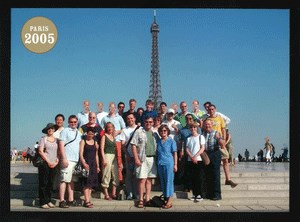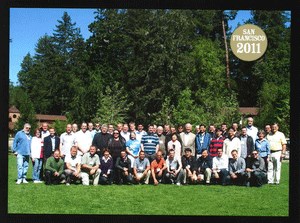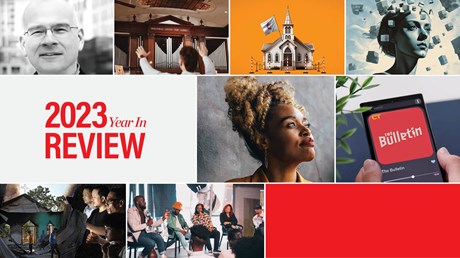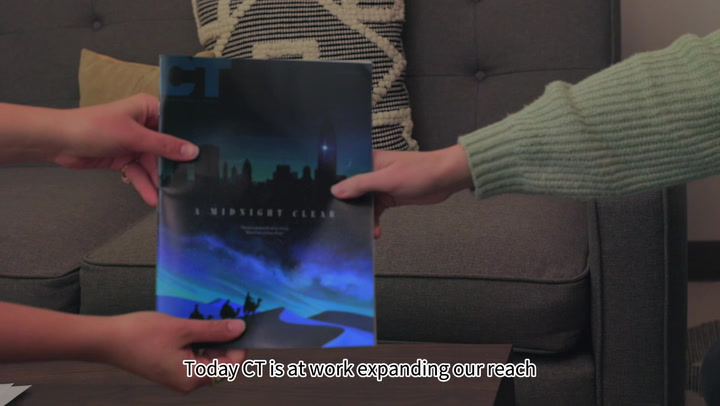Will you help encourage and connect the church?
Give NowWill you help encourage and connect the church?
Give NowKeith Stonehocker recently retired from Christianity Today after serving for 38 years—but not without leaving a legacy that brought Christianity Today into the 21st century as a global ministry. Because of Keith's hard work, Christianity Today and Leadership Journal are being edited and published in several different countries. Keith's goal was simple: bring creators of Christian content together, internationally, to serve the Kingdom better. We sat down to ask him more about his desire to spread Christian content throughout the world.

How did Christianity Today come to expand to such a far international reach?
After we launched on the Internet in the 1990s, we realized we suddenly had a much more international reach. Ten percent of our traffic came from overseas. We were trying to figure out how to expand international ministry, and I came up with the idea of trying to develop a network of Christian media companies around the world, which lead to the Global Christian Internet Alliance (GCIA). We've had 10 conferences over the years, and now 27 ministries in 14 major languages are involved. The main thing we did was try to develop relationships with leading Christian media ministries, internationally.

The first conference was in 2001, in Chicago. I pulled contacts from major languages and then tried to develop alliances. We've held conferences in Chicago, Amsterdam, Paris, Seoul, Texas, Rio De Janeiro, San Francisco, and more. The purpose was to get these partners together and learn from each other. Many of these companies were way more advanced on the Web than we were.
We've also developed international partnerships that have led to several new publications. Christianity Today Brazil launched in 2007, Christianity Today Korea launched in 2008. Both use one-third to one-half of our content and then the rest is their own original content, and both came from this alliance.
We also have Leadership Journal Brazil, which launched in 2012. Half the content is theirs, half is ours. Leadership Journal Africa is in English, but again, it's a 50/50 content split. It's interesting—you'll see, for example, John Ortberg in there.

I'm most impressed with the production quality of Christianity Today Korea magazine—perfect, bound, 100 pages. It's beautiful.
The whole point of GCIA is for relationships and partnerships to materialize. More recently Jim Bolton and Cliff Johnson have been creating global relationships for books and Bibles. We've done books and Bibles for years and years, but now we're working with international publishers to do those directly.
How did you make this alliance happen?
Networking and researching with people I knew. I just did a lot of research and then called them together.
The French and the Dutch have now developed Jesus.net, a daughter site of GCIA. They just had an annual conference at the Billy Graham Training Center at the Cove. They're doing the evangelism site for the Billy Graham Evangelistic Association, in English, and they have evangelism sites in seven or eight languages. But all of that started because they met at a GCIA.
And you know what's amazing? I don't think there's ever been a person I emailed who didn't come, or didn't try to come. Just the name Christianity Today—people know it around the world. That's why even in Korea, they use the English name on the magazine.
Building Church Leaders in China has been significant project. Four years ago we spent a week in China trying to figure out what type of partnerships we could do over there. Magazines are pretty restricted and censored, books are expensive to get published. Digital was the best way to go.
We met a company in China that helped take Building Church Leader topics and put them into distance learning, the idea being that laypeople would do it on their own and then meet up once a month. That launched in December 2011 and it's been a huge, growing ministry, gaining tons of traction. We also set up a partnership with Far East Broadcasting Corporation—they took seven or eight sermons and translated them into Chinese and English, like listening to a translator. They did it like that because Chinese people like to learn English that way. So it's kind of a ministry. They put up the first sermons in February 2012, and they have been accessed 1.6 million times. Like my contact in China said, "In China, numbers are not a problem."
So we're active in China.
Did you have a partner in creating the Global Christian Internet Alliance?

Nope, it was just me. It'll probably retire with me—we were sort of phasing it out, anyway. I think it has run its course in terms of what it's accomplished. We've built those relationships, and it's a lot of work planning an international conference. We didn't have one in 2012. But I might get a lot of these partners together, the Dutch, the Koreans, the Brazilians, if they attend the Willow Creek Global Leadership Summit. I might try to hold a conference with them for CT, even if it's just voluntary.
Ah. I'm proud of myself for putting on both shoes in the morning, but you started a global conference. That's cool. Why are you so passionate about this?
Part of it is because I'm an international myself. Frankly, most other countries aren't as ethnocentric as the US. Our school children know nothing about geography. Canadians have an inferiority complex because we're in the shadow of the big bad U.S.—if you watch the Olympics in Canada, you see "Who won this, who won that," but in the U.S. you only watch the U.S. competitors. So I think my international perspective is a little bit colored by my Canadian background. My wife and I together have been in almost 45 countries. She'll always have me beat, because she was a foreign exchange student in Australia before we got married. She traveled around to five different countries while she was there, so I can't seem to catch up and beat her now.
I just want to help these partners we have in any way that I can.
Do you think you'll use this alliance as a ministry now that you're retiring?
I'll certainly say to these people, "If you want me to come over there and do free consulting, find my wife and me a place to stay and help with airfare, and I'd be happy to use my experience further whatever you're doing."
There's a guy who launched a Christian book publisher in France and Brazil named Peter Cunliffe. He's been retired for the last ten years, and he does that. He comes in voluntarily and just helps out.
I'd be a free international ministry consultant. I don't know if it'll happen, but it's always been a dream of mine for when I'm retired.
I feel like every time I talk to you, I realize that the history of this place is so much bigger than all of us newbies who just started here.
Oh yes. I bet more than half the staff wasn't even born when I started here.
I'd been committed since high school to try to invest my life in some kind of ministry. At my church a missionary came and said, "Some people wait to be called to the pastorate or the mission field. I think it makes sense to try to pursue as full time a Christian ministry as possible unless you've received a specific call to a very specific profession outside of ministry."
It made sense to me that if I invested my life in some kind of Christian service, it would be more fulfilling. I got a masters in communication and theology. I always thought I'd be in some kind of parachurch ministry, but never a pastoral role. But I wanted to invest my time—my life—into some kind of Christian service.










